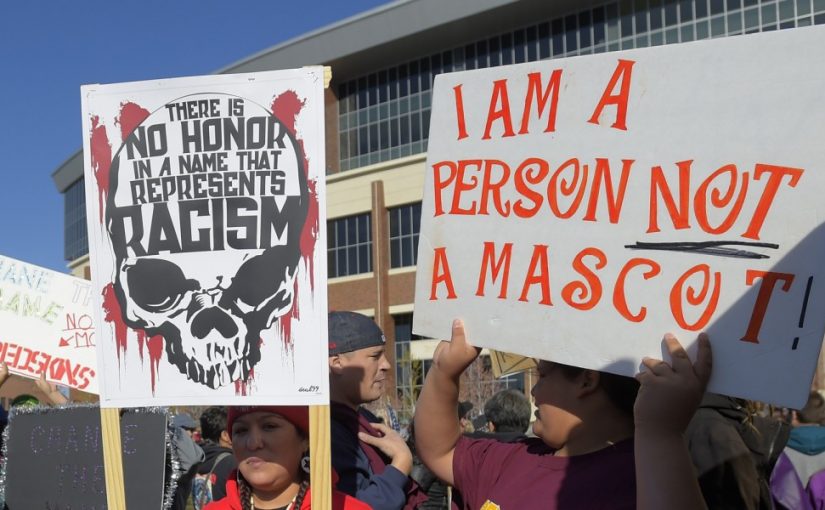Triggering Passages:
“…white appetite signifies unthinkable privilege and aggression, but it also represents the desire on which both white female citizenship and the future of the postemancipation republic rests. The text thus aligns the white reader with sentimentality’s political paradox: to empathize with the slave is to internalize her, but to do so is also to annihilate her subjectivity.” (Tompkins, 113)
“Despite an80-year attachment to a mascot, it’s just a mascot. It’s not like you had homeland buried under a dam project, or had your village burned by the military. And, the Lakota people and other native peoples deserve to be recognized as more than mascots.” (LaDuke, 105)
“The $100,000 complaint was filed against the Minneapolis theater and its star, actress Frankie Heath, charging that when the actress sang the song “Butter and Eggs,” she used “certain tones and gestures to convey that all dealers in butter and eggs were men of immoral and licentious character.” (Newman, 72)
These three passages examine themes of stereotyped bodies and the circumstances of degradation in white society in which these racial characters are produced to other and erase subjectivity. In the third chapter of Tompkins’ book, she highlights how black slave bodies were commodified as labor in the 19th century, thus othering them as inhuman and edible. She used the metaphor of ingestion to demonstrate how the erasure of black subjectivity reemerges to undermine the authority of social order, and how the kitchen, viewed as a “back of the house”(107) operation, transforms to become a space of resistance to this authority. Similarly, LaDuke speaks to how the Lakota and other native people have been offensively stereotyped by the “Red Skins” mascot. This caricature of a native person represents a violent history of bounty hunters literally skinning Indians to present their bloodied skin as a proof of the murder. This racist logo has been used to other native people and attempts to remove their selfhood by being portrayed as an obnoxious sports mascot. Lastly, my Newman quote stretches this idea that identities that oppose the dominant class are degraded. When actress Frankie Heath lyrically stereotyped “Butter and Egg men” as immoral and corrupt, she and the theater where she worked were charged and scrutinized for suggesting these men were inherently of a fraudulent nature. My guess is the same men who filed this complaint were conscious of the possibility of being exposed and possessing characteristics in which Frankie Heath stereotyped them as, and falling from their position of economic and social power.
Works Cited
LaDuke, Winona. Chronicles: Stories from the Front Lines in the Battle for Environmental Justice. Edited by Sean Aaron Cruz. 1st edition. Spotted Horse Press, 2016.
Newman, Kara. The Secret Financial Life of Food: From Commodities Markets to Supermarkets. New York: Columbia University Press, 2012.
Tompkins, Kyla Wazana. Racial Indigestion: Eating Bodies in the 19th Century. New York: NYU Press, 2012.
